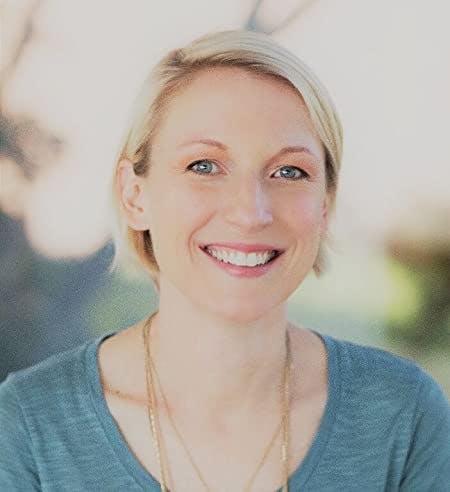The Key to High-Performing Teams: Psychological Safety
For many American workers, the brand name Google has become synonymous with aspirational workplace culture. And there’s data to back up the hype: for years, Google has been at or close to the top in LinkedIn’s internal study1 of the country’s top employers.
What is it about this particular company that allows it to sit above so many others in culture, engagement, and desirability? It’s not just the comp and the lavish benefits, nor the opportunity to share your “Noogler” status on LinkedIn and show your high school classmates that you’ve arrived. The biggest draw, according to job searchers, is Google’s relentless focus on using data and science to support workplace happiness and to promote high-functioning teams.
In 2015, Google’s People Operations team did their own deep dive study2 to find out which factors are most important for creating these high-performing teams. They were surprised to find out that the #1 most influential factor was not diversity of thought, level of education, or work ethic. Instead it was the dark horse of psychological safety.
In this article, we’ll discuss what psychological safety is, why it’s so important (hint: It’s not just about feelings), and we’ll leave with a few “take-home” ideas for how you can increase it in your organization.
References
- Top Companies 2022: The 50 best workplaces to grow your career in the U.S. (n.d.). www.linkedin.com.https://www.linkedin.com/pulse/top-companies-2022-50-best-workplaces-grow-your-career-us-/
- Rozovsky, J. (2015, November 17). re:Work - the Five Keys to a Successful Google Team. Withgoogle.com.https://rework.withgoogle.com/blog/five-keys-to-a-successful-google-team/
- Edmondson, A., & Mortensen, M. (2021, April 19). What Psychological Safety Looks Like in a Hybrid Workplace. Harvard Business Review. https://hbr.org/2021/04/what-psychological-safety-looks-like-in-a-hybrid-workplace
- Newman, L. (2021, September 21). The hidden risk of diversity training, and what you should do about it. WeWhistle. https://www.wewhistle.com/the-hidden-risk-of-diversity-training-and-what-you-should-do-about-it/
- Bresman, H., & Edmondson, A. (2022, March 17). Research: To Excel, Diverse Teams Need Psychological Safety. Harvard Business Review. https://hbr.org/2022/03/research-to-excel-diverse-teams-need-psychological-safety
- Christian, M. S., Bradley, J. C., Wallace, J. C., & Burke, M. J. (2009). Workplace safety: A meta-analysis of the roles of person and situation factors. Journal of Applied Psychology, 94(5), 1103–1127. https://doi.org/10.1037/a0016172
- Jung, O. S., Kundu, P., Edmondson, A. C., Hegde, J., Agazaryan, N., Steinberg, M., & Raldow, A. (2021). Resilience vs. Vulnerability: Psychological Safety and Reporting of Near Misses with Varying Proximity to Harm in Radiation Oncology. The Joint Commission Journal on Quality and Patient Safety, 47(1), 15–22. https://doi.org/10.1016/j.jcjq.2020.09.005
- Delizonna, L. (2022, October 19). High-Performing Teams Need Psychological Safety: Here’s How to Create It. Harvard Business Review. https://hbr.org/2017/08/high-performing-teams-need-psychological-safety-heres-how-to-create-it
- Klein, G., Koller, T., & Lovallo, D. (2020, June 29). Bias busters: Premortems: Being smart at the start. McKinsey & Company. https://www.mckinsey.com/capabilities/strategy-and-corporate-finance/our-insights/bias-busters-premortems-being-smart-at-the-start
- Zenger, J. (2018, October 4). Should Leaders Aspire To Warmth Or Competence? Forbes. https://www.forbes.com/sites/jackzenger/2018/10/04/should-leaders-aspire-to-warmth-or-competence/?sh=424b5787eded
About the Author
Laurel C Newman, Ph.D.
Laurel Newman is a social psychologist and an applied behavioral scientist. She began her career as a psychology professor and department chair at Fontbonne University, leaving academia in 2018 to help create a behavioral science function at Maritz. Laurel consults, conducts research, and delivers corporate behavioral science curricula. She writes articles and books on topics such as employee engagement and how to build a behavioral science function within an organization. Laurel has a Ph.D. in Social and Personality Psychology from Washington University in St. Louis. She works in the Experience Center of Expertise at Edward Jones and is co-founder and advisor to the employee loyalty startup Whistle Systems.
About us
We are the leading applied research & innovation consultancy
Our insights are leveraged by the most ambitious organizations
“
I was blown away with their application and translation of behavioral science into practice. They took a very complex ecosystem and created a series of interventions using an innovative mix of the latest research and creative client co-creation. I was so impressed at the final product they created, which was hugely comprehensive despite the large scope of the client being of the world's most far-reaching and best known consumer brands. I'm excited to see what we can create together in the future.
Heather McKee
BEHAVIORAL SCIENTIST
GLOBAL COFFEEHOUSE CHAIN PROJECT
OUR CLIENT SUCCESS
$0M
Annual Revenue Increase
By launching a behavioral science practice at the core of the organization, we helped one of the largest insurers in North America realize $30M increase in annual revenue.
0%
Increase in Monthly Users
By redesigning North America's first national digital platform for mental health, we achieved a 52% lift in monthly users and an 83% improvement on clinical assessment.
0%
Reduction In Design Time
By designing a new process and getting buy-in from the C-Suite team, we helped one of the largest smartphone manufacturers in the world reduce software design time by 75%.
0%
Reduction in Client Drop-Off
By implementing targeted nudges based on proactive interventions, we reduced drop-off rates for 450,000 clients belonging to USA's oldest debt consolidation organizations by 46%




















